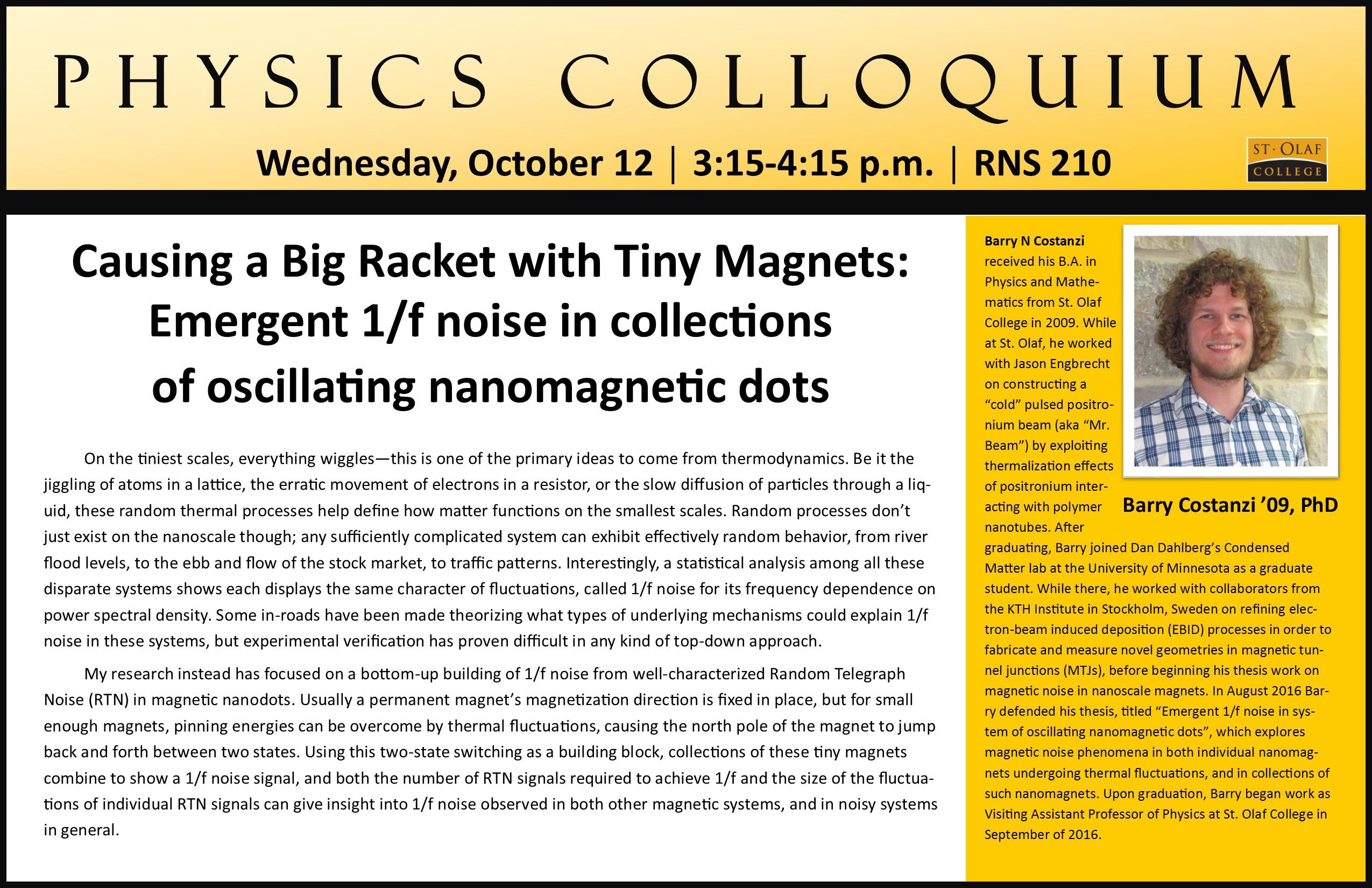Monday, Oct 31
Seminar: What is summer research like in Computer Science? Six CS majors from last summer’s team at St. Olaf will presenting their projects this week, ranging from analyzing the terminology used in medical articles, to using Raspberry Pis for teaching parallel computing, to helping deaf people learn how to hear.
| Jesus Caballero ’18 | Raspberry Pi for teaching Parallel and Distributed Computing |
| Eric Oseid ’17 | Visualizing Parallel Computation on the Raspberry Pi |
| Luke Zimmerman ’18 | Updating OpenGL in the Software Design Course |
| Justin Pacholec ’18 | A HiPerCiC App for Learning to Hear with Cochlear Implants |
| Lucas Heilman ’19 | The Quiz Game: A HiPerCiC App for Interactive Learning |
| Joe Peterson ’18 | Counting Medical Terms using WebMapReduce |
Tuesday, Nov 1
No Seminar
Wednesday, Nov 2
No Seminar
Thursday, Nov 3
Seminar:The Chemistry of Cannabis (A joint Chemistry and Biology Seminar)
Gary Starr, Chief Medical Officer,Co-Founder of Leafline Labs
Ken Ouren, University of Minnesota College of Pharmacy Class of 2018. Alum ’14
3:15, RNS 150
Friday, Nov 4
Seminar: Barcodes: Discerning the Shape of Data
Matthew Wright, Visiting Assistant Professor in Mathematics
Friday, Nov 4, 3:40 pm in RNS 204
In recent years, the mathematical field of topology has been applied to the analysis of complex data. Persistent homology is one of the most popular and well-studied tools in topological data analysis. Persistent homology associates with complex data easily-visualized algebraic objects called barcodes, which provide information about the structure of the data. Persistent homology has been applied to data arising from computer graphics, biology, neuroscience, signal processing, and more. I will give an introduction to persistent homology, explaining what it is, what it can do, and how it is computed. This talk is the first of a two-part series; the second talk on November 11 will focus on a current project to develop software for computing a specific type of persistent homology.

